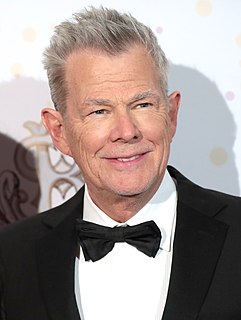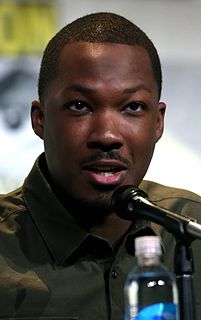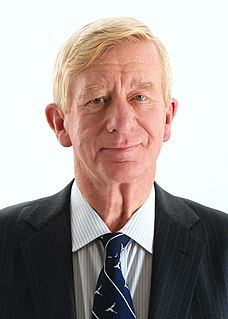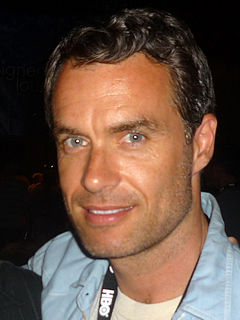A Quote by Edward Norton
Every little thing that people know about you as a person impedes your ability to achieve that kind of terrific suspension of disbelief that happens when an audience goes with an actor and character he's playing.
Related Quotes
But I've always felt that the less you know about an actor's personal life, the more you can get involved in the story in which he's playing a character. And I don't like to see movies where you know about everything that happens behind the scenes. I can't engage in the story if I know what's going on in the actor's head.
I'm probably wouldn't do anything differently if I had to do it again. Every little thing that happens to you, good and bad, becomes a little piece of the puzzle of who you become. Every successful person you read about - Warren Buffett, Bill Gates - they all say pretty much the same thing. 'Do what you love.' I know I did.
I think you should identify with your character, but plenty of people like themselves and hate themselves. You just have to find out what's truthful for the person you're playing. When people talk about that, I think what they're saying is that as an actor, as Peter, you don't want to make a judgment that comes from your worldview about the character. Your judgments should be coming from the place of the character, and within that space, sure, you could love or hate yourself or whatever you think is most appropriate.
We're getting to the point where we're impinging on democratic institutions in this country and I think, you know, it takes a certain - not a suspension of disbelief - but willingness to go along with other people to get the ship of state going forward. I'm not sure that happens in a [Donald] Trump presidency, frankly.
As an actor, you don't want to know the beginning and end to your character's arc. It makes it more fun. You're not playing the end. You're playing it realistically. You don't know where this character is going to go and what's going to happen to him, which just makes it more interesting for the viewers to watch. They're going on the journey with you, as the actor and the character.
I definitely prefer the single camera better. For me it's the simple fact that I enjoy working in front of an audience, but when you're trying to create a suspension of disbelief it's much harder to do in front of audience because they become a partner. Moreso than that, they become in charge of the timing. From the simple, mechanical fact that you have to hold for their laughter. The actual timing of the scene is in the hands of the audience. As a control freak, I don't enjoy that as much as the ability to be able to control it in an edit room.
What I love most about playing in front of people has something to do with a certain kind of energy exchange. The attention and appreciation of my audience feeds back into my playing. It really seems as if there is a true and equal give and take between performer and listener, making me aware of how much I depend on my audience. And since the audience is different every night, the music being played will differ too. Every space I performed in has its own magic and spirit.




































